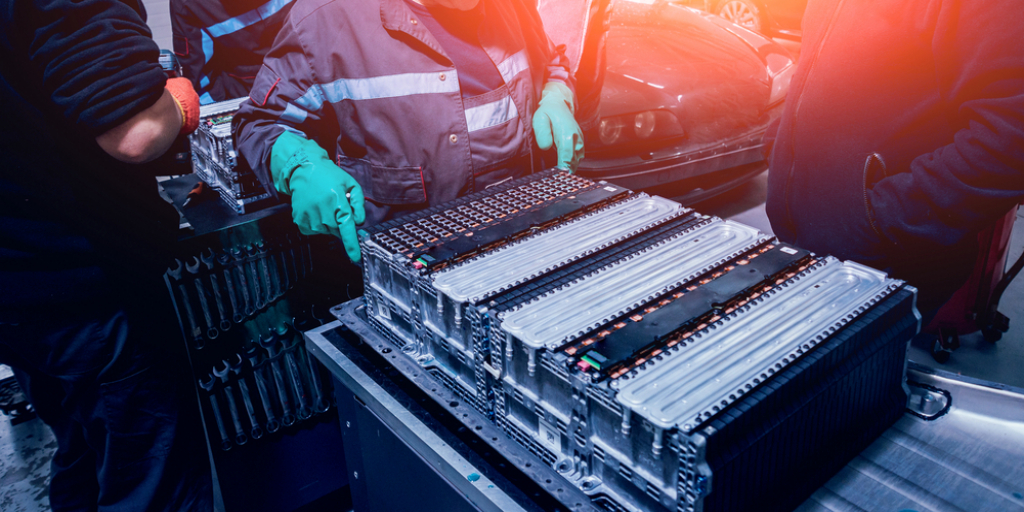Lithium Battery Power Stations: The Future of Energy Storage
Introduction
As the demand for renewable energy sources continues to rise, the need for efficient energy storage systems becomes increasingly crucial. Lithium battery power stations have emerged as a promising solution to address the challenges associated with renewable energy storage. These power stations utilize lithium-ion batteries, which are known for their high energy density, long cycle life, and fast charging capabilities. This article explores the potential of lithium battery power stations as the future of energy storage.
Advantages of Lithium Battery Power Stations
1. High Energy Density: Lithium-ion batteries possess a high energy density, enabling them to store a large amount of energy in a compact size. This characteristic is especially advantageous for applications where space is limited, such as urban areas or remote locations.
2. Long Cycle Life: Lithium-ion batteries have a longer cycle life compared to other battery technologies. They can be charged and discharged numerous times without significant capacity loss. This longevity makes them a cost-effective option for energy storage.
3. Fast Charging: Lithium-ion batteries can be charged at a much faster rate compared to other battery technologies. This allows for quick replenishment of stored energy, making them ideal for situations where a sudden surge in energy demand occurs.
4. Scalability: Lithium battery power stations can be easily scaled up or down depending on the energy requirements. This flexibility allows for the integration of renewable energy sources into the grid, ensuring a stable and reliable power supply.
Applications of Lithium Battery Power Stations
1. Renewable Energy Integration: Lithium battery power stations play a critical role in integrating renewable energy sources into the grid. They can store excess energy generated from sources like solar or wind power during periods of low demand and release it during peak demand, ensuring a consistent energy supply.
2. Off-Grid Power Supply: In remote areas where access to the grid is limited or non-existent, lithium battery power stations can provide a reliable source of power. These power stations can be deployed in rural communities, construction sites, or disaster-stricken areas, ensuring access to electricity for essential services.
3. Electric Vehicle Charging Infrastructure: The growing adoption of electric vehicles requires an extensive charging infrastructure. Lithium battery power stations can serve as fast-charging hubs, allowing electric vehicles to quickly recharge their batteries, reducing range anxiety and promoting the widespread use of electric vehicles.
4. Backup Power Supply: Lithium battery power stations can act as backup power supplies during grid outages. This is particularly useful in areas prone to natural disasters or regions with an unreliable grid infrastructure. The stored energy can be used to power critical facilities like hospitals, data centers, or emergency services.

Challenges and Future Outlook
While lithium battery power stations offer numerous advantages, there are challenges that need to be addressed to fully realize their potential. The production and disposal of lithium-ion batteries can have environmental implications if not managed properly. Additionally, the cost of lithium battery power stations needs to be reduced to make them more accessible to a broader range of applications.
However, technological advancements and economies of scale are driving down the cost of lithium-ion batteries, making them more affordable and viable for widespread deployment. Furthermore, research and development efforts are focused on improving battery performance, safety, and recyclability.
Conclusion
Lithium battery power stations are poised to revolutionize the energy storage landscape. With their high energy density, long cycle life, fast charging capabilities, and scalability, these power stations offer a promising solution to address the challenges associated with renewable energy integration, off-grid power supply, electric vehicle charging, and backup power. As technology continues to advance and costs decrease, lithium battery power stations will play an increasingly significant role in shaping the future of energy storage.
-
 In today's fast-paced world, we rely heavily on technology to keep us connected and productive. However, the technology we rely on also requires a steady stream of power to operate. This is where the 48V LiFePO4 battery comes in. This high-performance battery is quickly becoming the go-to option for those looking to revolutionize their power needs. The 48V LiFePO4...Read more
In today's fast-paced world, we rely heavily on technology to keep us connected and productive. However, the technology we rely on also requires a steady stream of power to operate. This is where the 48V LiFePO4 battery comes in. This high-performance battery is quickly becoming the go-to option for those looking to revolutionize their power needs. The 48V LiFePO4...Read more -
 Wholesale LiFePO4 batteries are becoming increasingly popular for a wide range of applications, from electric vehicles to renewable energy storage systems. These batteries offer numerous advantages over traditional lead-acid batteries, including longer lifespan, faster charging times, and higher energy density. When it comes to buying wholesale LiFePO4 batteries online, there are many factors to consider. In this article, we will...Read more
Wholesale LiFePO4 batteries are becoming increasingly popular for a wide range of applications, from electric vehicles to renewable energy storage systems. These batteries offer numerous advantages over traditional lead-acid batteries, including longer lifespan, faster charging times, and higher energy density. When it comes to buying wholesale LiFePO4 batteries online, there are many factors to consider. In this article, we will...Read more -
 When it comes to powering up your appliances and devices, you need a reliable and long-lasting battery. One of the best options in the market today is the 100Ah 12V LiFePO4 battery. This battery is a game-changer, providing a high-performance power source that is ideal for powering up off-grid applications, recreational vehicles, marine vessels, and more. Let's take a...Read more
When it comes to powering up your appliances and devices, you need a reliable and long-lasting battery. One of the best options in the market today is the 100Ah 12V LiFePO4 battery. This battery is a game-changer, providing a high-performance power source that is ideal for powering up off-grid applications, recreational vehicles, marine vessels, and more. Let's take a...Read more -
 With the increasing demand for energy storage solutions, lithium iron phosphate (LiFePO4) batteries have emerged as a popular choice due to their high energy density, long cycle life, and inherent safety features. However, with various manufacturers and suppliers offering LiFePO4 batteries with different specifications and performance metrics, it can be challenging to compare and choose the right battery for a...Read more
With the increasing demand for energy storage solutions, lithium iron phosphate (LiFePO4) batteries have emerged as a popular choice due to their high energy density, long cycle life, and inherent safety features. However, with various manufacturers and suppliers offering LiFePO4 batteries with different specifications and performance metrics, it can be challenging to compare and choose the right battery for a...Read more -
 In recent years, the agricultural industry has experienced a significant transformation. The traditional manual labor-intensive practices have gradually given way to more advanced and mechanized methods. This shift has been made possible, in part, by the advent of high-power lithium batteries in farming tools. These batteries have proven to be a game-changer, improving efficiency, productivity, and sustainability in the agricultural...Read more
In recent years, the agricultural industry has experienced a significant transformation. The traditional manual labor-intensive practices have gradually given way to more advanced and mechanized methods. This shift has been made possible, in part, by the advent of high-power lithium batteries in farming tools. These batteries have proven to be a game-changer, improving efficiency, productivity, and sustainability in the agricultural...Read more -
 For those who own a boat or are in the boating industry, the marine starting battery is an essential component that ensures the vessel starts reliably and performs optimally. A reliable starting battery is crucial for peace of mind and safety while out on the water, making it essential to choose the right one for your needs. A marine...Read more
For those who own a boat or are in the boating industry, the marine starting battery is an essential component that ensures the vessel starts reliably and performs optimally. A reliable starting battery is crucial for peace of mind and safety while out on the water, making it essential to choose the right one for your needs. A marine...Read more -
 Lithium iron phosphate battery, as a lithium-ion battery with lithium iron phosphate (LiFePO?) as the positive electrode material and carbon (usually graphite) as the negative electrode material, occupies an important position in the field of modern energy storage with its unique performance and advantages. This article will explore the working principle, main characteristics and technical details of lithium iron phosphate...Read more
Lithium iron phosphate battery, as a lithium-ion battery with lithium iron phosphate (LiFePO?) as the positive electrode material and carbon (usually graphite) as the negative electrode material, occupies an important position in the field of modern energy storage with its unique performance and advantages. This article will explore the working principle, main characteristics and technical details of lithium iron phosphate...Read more

